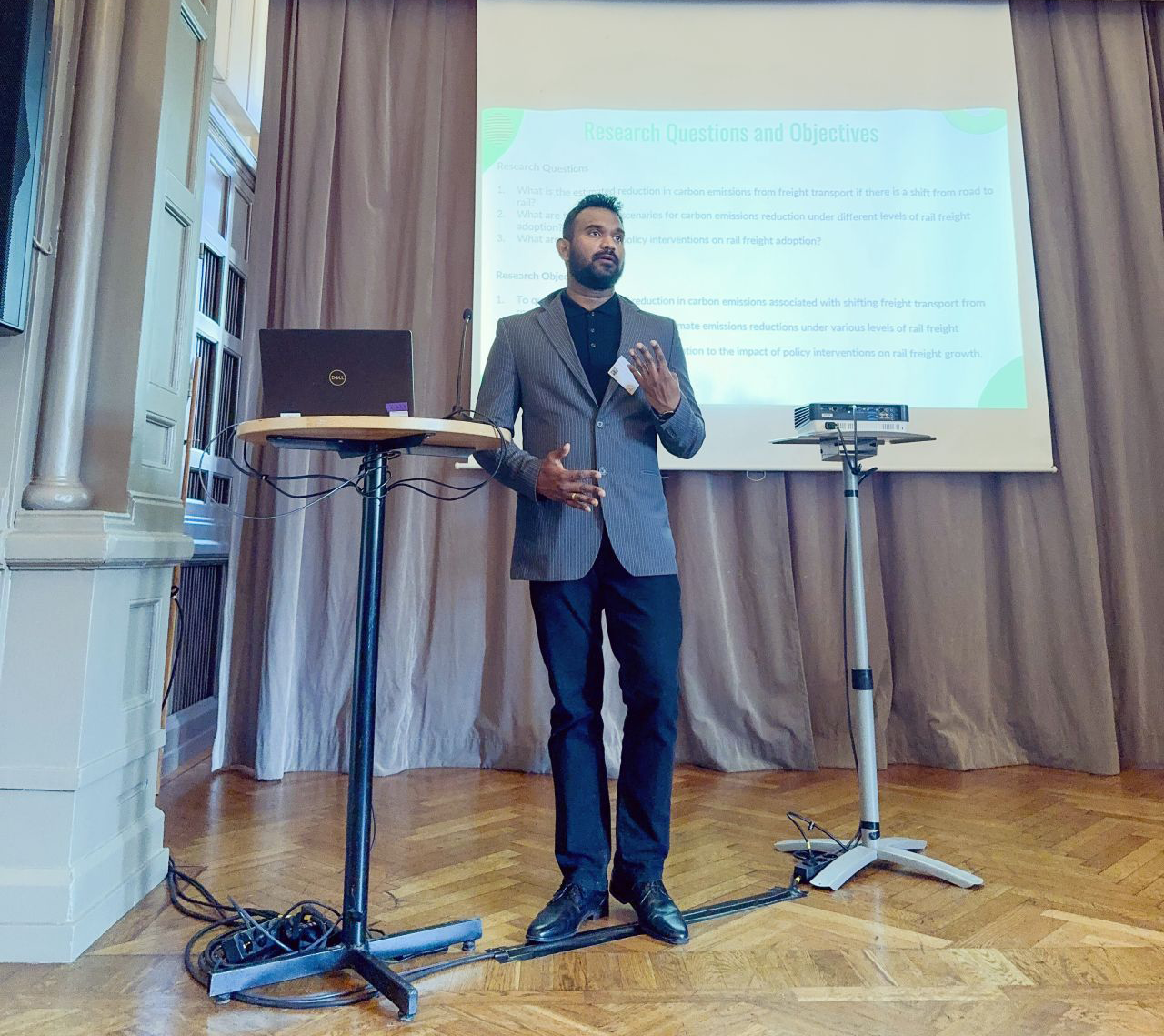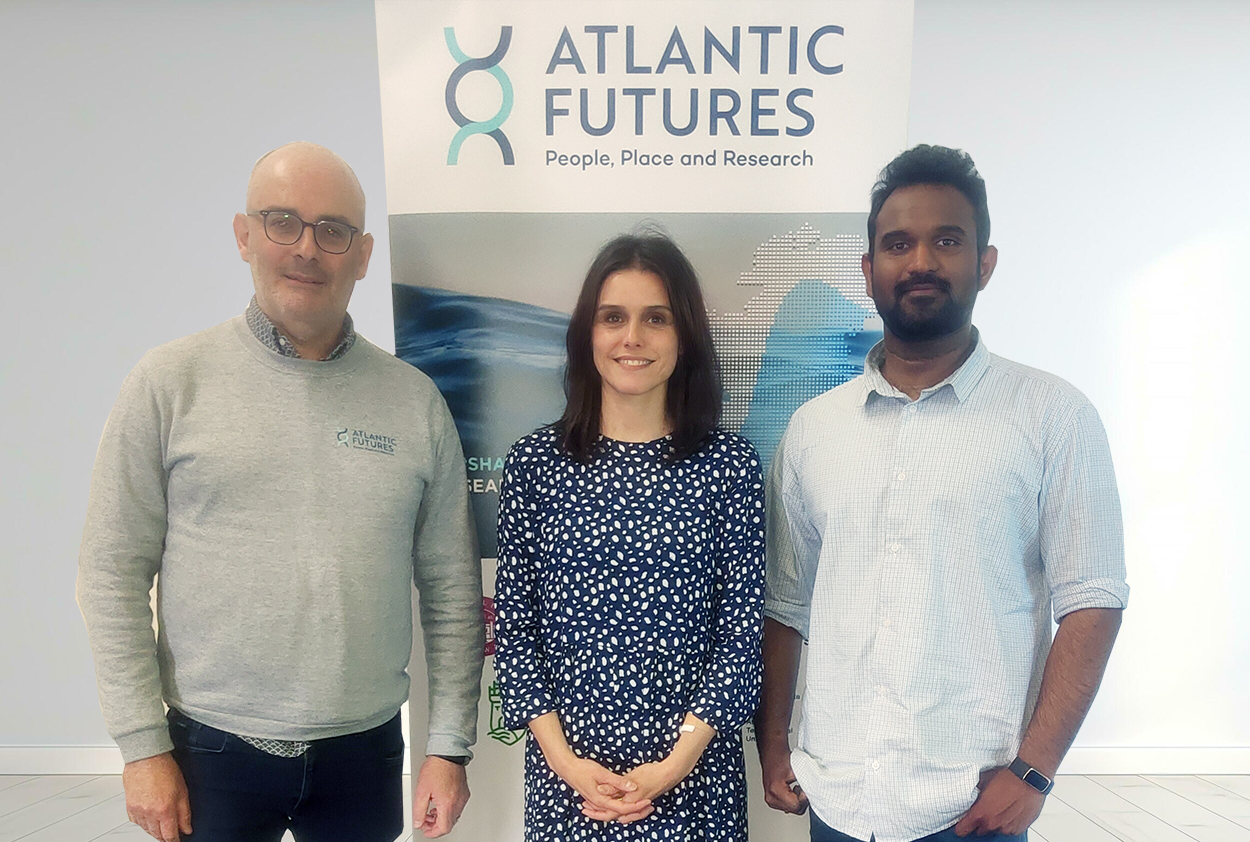Lund, Sweden — Researchers from Atlantic Futures Research Stream 6 have presented a paper on the impact of road-to-rail freight transport shift on carbon emissions at the Euro Working Group on Transportation 2024 Conference, held at University of Lund in Sweden.
The paper, titled “Assessment of the Impact of Road-Rail Freight Transport Modal Shift on Ireland’s Carbon Emissions,” delves into the significant environmental benefits that can be achieved by transitioning freight transport from road-based heavy goods vehicles to more sustainable rail options. The paper, led by Chethaka Gamage, a PhD student from Atlantic Technological University – Galway, marks a key contribution to the growing body of research focused on decarbonizing Ireland’s freight sector.
The Research Focus
The paper investigates the decarbonization of freight transport in Ireland using ARIMA time series modelling to forecast road and rail freight demands through 2030. The study is based on annual cargo turnover data and evaluates various modal shift policies, ranging from no shift to significant transfers of freight from road to rail and its impacts on emissions.
Through this analysis, the study reveals that without intervention, freight transport emissions are projected to rise significantly. However, implementing modal shift policies, ranging from moderate to ambitious, has the potential to drastically reduce emissions compared to a no-action scenario. The results highlight how modal shifts can play a crucial role in mitigating emissions and conserving energy within Ireland’s freight sector.

Chethaka Gamage commented.
Our research highlights that shifting a significant portion of Ireland’s freight transport from road to rail can generate substantial environmental benefits, This aligns with Ireland’s commitment to reducing carbon emissions and embracing sustainable transport solutions.
Dr. Amaya Vega, one of the project’s supervisors from Atlantic Technological University, commented on the relevance of the study:
This research is crucial in illustrating the pathways Ireland can take to reduce emissions in the freight sector. The insights derived from this study offer practical data that policymakers can rely on to craft transport strategies aimed at reducing the nation's carbon footprint.
Dr. Brian McCann, another project supervisor from Atlantic Technological University added:
This study demonstrates the potential of leveraging rail infrastructure to reduce emissions, not just in Ireland but also as a model for other regions.
Prof. Trevor Cadden, who also supervises the project from Ulster University – Northern Ireland, praised the relevance of the study's findings:
Freight transport is vital for Ireland’s economy, and the results of this research show how we can modernize the sector while meeting critical environmental targets. The data and recommendations from this paper will be invaluable in shaping future policy discussions.
Collaboration and Support
The research is part of a broader initiative within Atlantic Futures Research Stream 6, aimed at addressing the future trajectory of freight transportation and sustainability in Ireland. Chethaka Gamage acknowledged the contribution of the research team, stating,
This project would not have been possible without the support of my supervisors and colleagues. Their expertise and collaboration were key in finalizing this work.
A Platform for Innovation
The Euro Working Group on Transportation Conference is an annual gathering of transportation researchers, policymakers, and industry experts from around the world. The 2024 edition, held at the University of Lund, featured presentations on the latest advances in sustainable transport, urban mobility, and transport infrastructure.

Chethaka Gamage expressed gratitude for the opportunity to present the team’s work on this international stage:
It’s been a privilege to represent Atlantic Futures project as well as Atlantic Technological University and share our findings with such a distinguished audience. The discussions and feedback from other experts will undoubtedly strengthen our future research efforts.
Looking Forward
As Ireland continues to grapple with the challenges of reducing emissions across all sectors, research like this is critical to informing future policy decisions. The findings from this paper by Atlantic Future Research Stream 6, will contribute to national and EU-wide discussions on freight connectivity, sustainability, and the future of transport infrastructure.
With this presentation, the Atlantic Futures Research Stream 6 team has positioned itself at the forefront of the conversation on sustainable freight transport in Ireland and beyond.
Atlantic Futures is funded by the Higher Education Authority (HEA) Ireland as part of the North South Research Programme.


